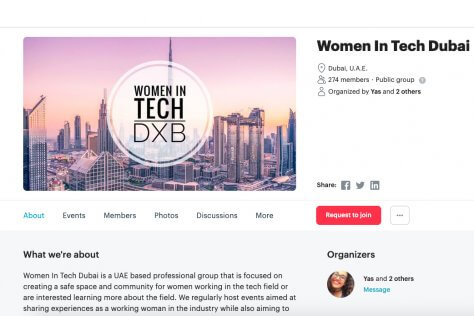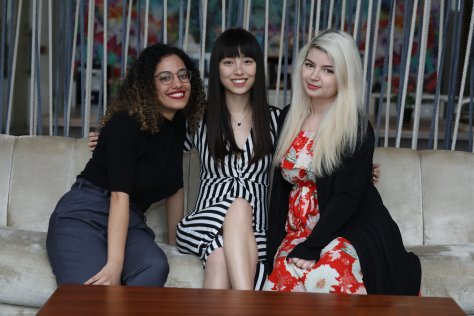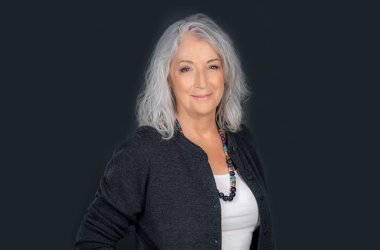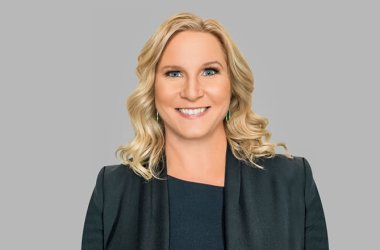CNME sat down with Ming Hu, Yasmine Fadel and Roxana Jula, the women behind Dubai’s first Women in Tech community, to understand how the group is providing a supportive environment for women in STEM professions.
There is one thing most women in STEM professions have in common: isolation. When a few years ago Uber’s whistleblower Susan Fowler published a 2,900 words blog post on the ins and outs of working at Uber, the second most appalling aspect of her story, following the sexual harassment, was the lack of women engineers in the organisation. Fowler counted six women out of over 150 engineers in Uber SRE – a number that had shrunk drastically during her time at the multinational ride-hailing company.
Women in STEM subjects feel lonely because they are, and unfortunately this prompts the few women who are in the field to leave it. Research by AAUW showed that isolation, male-dominated work environments, bias and a lack of effective women role models are some of the leading factors pushing women to leave STEM jobs.
Ming Hu, Software Engineer at Namshi.com, took matters in her hand when last year she contacted Yasmine Fadel, Software Engineer at Track24, in hopes to connect with more women in tech.
Hu said, “I was trying to find a community for women in tech in Dubai, and when I didn’t find any, I decided to create one myself. It was a very spontaneous idea, but I soon realised I wasn’t the only one who was looking for more women in this field.”
Fadel, who loved Hu’s idea and was thrilled to pursue it, continued, “Women often feel like they’re alone in this field. It’s very hard to have a look around the room and realise you’re only surrounded by men – you get used to it, but the feeling of isolation doesn’t fade away. The Women in Tech group was created to show women they’re not alone, that there are others facing the same challenges and doubts.
“We organise study groups, inspirational talks and workshops to help one another. It really resonates with people and we now have more than 200 people on our Meetup group.”
One of these 200 is Roxana Jula, Associate Senior Mobile Developer at Nodes. Although not one of the founding members, Jula has soon become a vital part of the group.
Jula is a facilitator for #IamRemarkable, a Google initiative to empower women and underrepresented groups
to speak openly about their accomplishments in the workplace – a topic that she is passionate about and she introduced to the Women in Tech Dubai community.
She explained, “At university, I was the only girl on the Computer Science course, and on my first day of class someone asked me if I was lost. I started coding when I was 13, and by the time I went to university, I was very confident in my skills and didn’t let that remark upset me. However, I can only imagine how that could’ve distressed someone who might have just been approaching this field – it’s very hard to be confident when you’re a minority, and self-promotion plays a big part in ensuring a successful career.”
Creating the Women in Tech community gave Hu, Fadel and Jula a way to show women they are not alone in the tech sector – however, the three understand that organisations must lead the change to make a real impact on the future of women in IT.
In fact, although tech giants are openly promoting gender equality based on meritocracy, a study by MIT explains how seemingly meritocratic organisations can unintentionally favour men over “equally performing women” due to ingrained, demographic bias.
Jula and Fadel believe that the first step to overcoming the “paradox of meritocracy” is to acknowledge biases, rather than ignoring them.
“We’ve seen a lot of organisations creating initiatives to reduce the gender gap, but the truth is that these won’t help as long as companies don’t address unconscious biases. Although these prejudices are very hard to change, acknowledging them is the first step towards eliminating them. Recognising a problem often feels uncomfortable to people, but it’s that feeling of unease that leads to change” explained Jula.
Fadel continued, “Female engineers very often leave tech within six to ten years of their careers. It all comes down to company culture – women who don’t feel supported by their organisation won’t stick around. Companies risk losing all the knowledge, resources and time they’ve invested into that person just because a manager, or the company itself, are not providing any support for their female employees.”
Maternity leave, equal pay, sensitivity and understanding are just a few of the aspects Fadel, Hu and Jula believe organisations should focus on to ensure retainability and workplace satisfaction for women in tech.

As easy and straightforward as that might sound, the majority of organisations –including the ones that are loudly advocating for equality– still struggle to provide a safe and inclusive working environment for women. In 2015, seven women who worked in Silicon Valley’s tech industry conducted a revealing study entitled “The Elephant in the Valley”. The study showed that 84 percent out of the over 200 respondents said they were told they were too aggressive on the workplace, while others revealed they had been considered too meek for the environment. Either way, women seem to feel a growing pressure to behave in a certain way – a pressure that it’s not put on their male counterparts.
“Pressure to perform is amplified for women, and too often that pressure leads to burnouts and a change in career. Women have to prove themselves twice as much as men, while at the same time we are told to be modest and celebrate others, rather than ourselves,” said Jula.
Fadel and Hu also shared their concerns over the stress women face on the workplace and reiterated the group wants to address all these challenges by creating a supportive environment for women to express themselves and overcome whichever issue they may face in the industry.
Hu explained, “The group has grown very quickly over the past year because of the support we show towards one another. Men have also shown a lot of interest and support. It’s exciting to have so many different people coming together to advocate change and help each other – we can’t wait to see what’s in store for the future.”
You can find out more about Women in Tech Dubai and join the group on Meetup.





